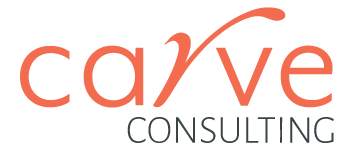We’re often led to think that if we’re not exhausted all the time we’re not doing enough. Sometimes, it’s good to sit back and evaluate what level of work is sustainable and whether our idea of a life well lived can mean more than pushing ourselves to the limit.
You’ve probably seen those memes, the ones which say something along the lines of: ‘I don’t want to go to my grave in a perfect body’.
And while the ‘seize the moment and enjoy life’ message of these is great, it’s also worth considering the darker implication of this idea.
The fact is, you might not want to end up in your grave before your time, or in a body so worn out you’re unable to enjoy the time you have left. And you almost certainly don’t want it to be work that put you in that grave.
As we are becoming more aware of the link between chronic stress and chronic health conditions, it’s helpful to think of a life well-lived as one that balances activities and achievements with health and longevity, rather than one that charges full pace towards the grave.
Wouldn’t it be great if we could make 2023 a year to focus on working sustainably while living the life we want?
How productive is productive?
This sentiment is certainly top of mind for many at the moment. As we move towards the end of the year, the conversations we’re having with our clients and contacts are all around how exhausted they are.
It’s a good opportunity for many of us to pull back and think about what is enough. How much should we be doing and why do we feel pressured to do more?
Amidst the all the talk about ‘quiet quitting’ recently, I keep thinking: what if quiet quitting is just setting boundaries? And why is the quiet quitting narrative focused predominantly on Gen Z when really it’s a concept that’s relevant to all of us, regardless of age?
We all have the right to step away at certain points in our lives and choose to work at a pace that is sustainable for us. We can push back on the idea that we have to always hustle to achieve, and that if we’re not exhausted we’re not doing enough.
Personal limits on productivity are not just grounded in how we feel, but in fact, going back as far as the inception of the eight hour working day. A famous example of this is Henry Ford who in 1914, cut shifts to eight hours and doubled pay, leading to a rise in productivity. Various research undertaken since suggests that optimum productivity is even less than eight: in fact six (or some say even less) hours a day leads to higher productivity through lower stress and decreased sickness.
Also, the recent surge in remote working has highlighted to many of us just how much time the average office worker spends doing productive tasks versus making cups of tea, chit chat and various other forms of social glue.
The pandemic also made something else clear: we can rewire our productivity expectations for scarcity. Those who had to handle additional pressures during lockdowns, such as home-schooling or sharing cramped living/working spaces, showed how productive we can be if we must. However, the absolutely crucial point to remember is that we can’t do it forever. Eventually, we will burn out – which is how many felt at the end of lockdowns.
A four-step plan for keeping yourself in check
Keeping our work levels sustainable is not always something we think of doing, or of re-evaluating as our lives change. So, having a plan is a great way to keep ourselves in check and ultimately look after our health and productivity. My suggested steps are:
Step 1: Put in place good habits that allow you to live as you intend to. So, for example if you work in a role that allows you downtime in January then make a habit of taking advantage of this in order to recharge, spend time with loved ones or whatever else you need to do.
Step 2: Work out what it is that fuels you and brings you joy and embed that into your routine. For example, I have one client who has mental health issues – tango dancing is what enriches her life.
Step 3: Book a quarterly meeting with yourself to review and see if these things are still sustaining you.
Step 4: Be conscious of your energy. Manage your energy rather than your time.
Follow this plan, and you’ll be well set up to work in a sustainable and productive way that will give you a better chance of walking slowly and healthily all the way to your grave.

